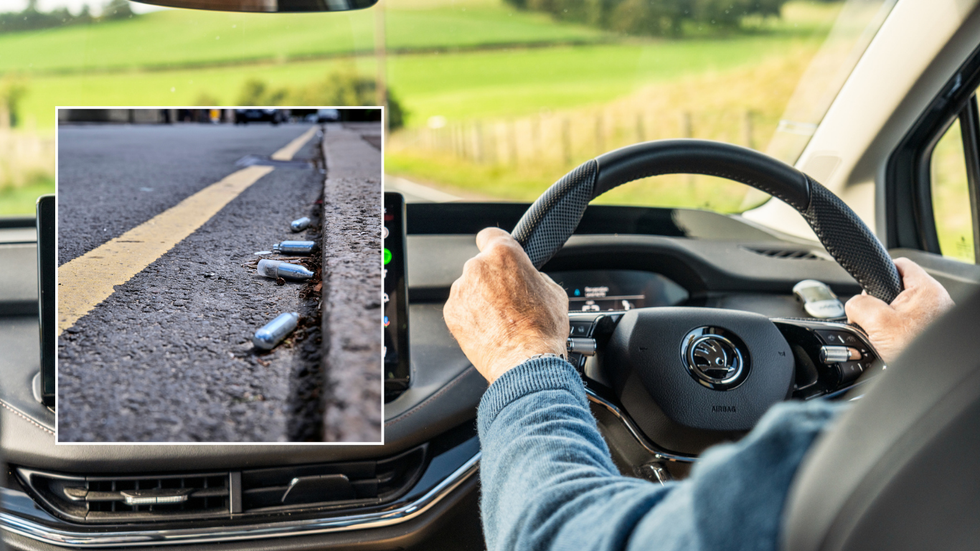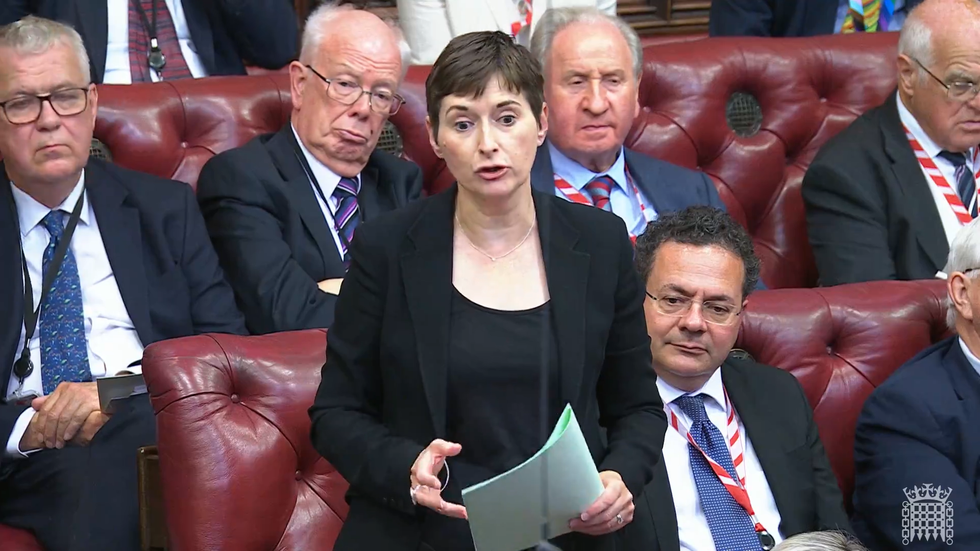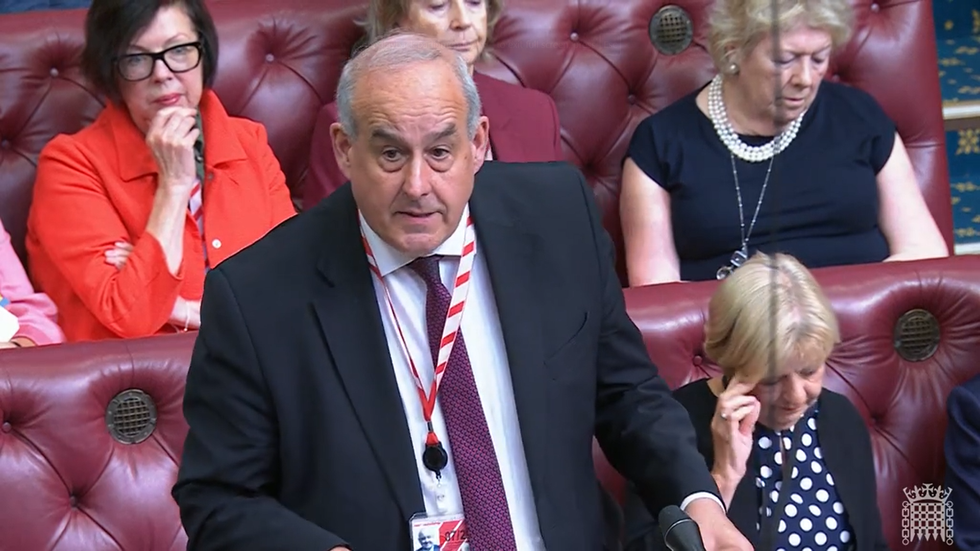Motorists have been warned of tougher driving rules coming into effect after Labour announced plans to crack down on concerning driving habits.
The tougher rules will target motorists inhaling nitrous oxide while operating vehicles, which has emerged as a serious road safety threat.
It follows a recent House of Lords debate where Liberal Democrat peer Baroness Pidgeon questioned ministers about the growing practice of drivers using balloons to consume the substance behind the wheel.
The Home Office Minister, Lord Hanson of Flint, acknowledged the gravity of the situation during the parliamentary session.
He confirmed that operating a vehicle while impaired by any substance, including nitrous oxide, constitutes an offence under the Road Traffic Act 1988.
The debate revealed that this hazardous behaviour poses lethal risks on UK roads, with ministers facing mounting pressure to implement “stronger detection methods” and deterrents to combat this form of drug-impaired driving in urban areas.
Government ministers confirmed that nitrous oxide has been classified as a controlled substance under legislation enacted by the previous administration.
The reclassification means that possessing, using, trafficking or supplying the gas now constitutes a criminal offence.

Lord Hanson revealed enforcement statistics showing authorities prosecuted 378 people for nitrous oxide-related crimes during the past year. Courts also secured convictions in 240 of these cases, demonstrating active police pursuit of offenders.
The minister noted that 0.9 per cent of adults between 16 and 59 years old reported using the substance within the previous 12 months.
While this percentage appears modest, Lord Hanson emphasised that it represents a substantial number of individuals engaging in illegal activity.
The Labour minister acknowledged that nitrous oxide can prove fatal upon initial use, underlining the severe health risks associated with recreational consumption.

LATEST DEVELOPMENTS:
- Drivers face ‘devastating’ consequences for insurance mistake leading to fines, points and fraud conviction
- Motorists fork out thousands in Low Emission Zone fines as petrol and diesel cars pay to travel on roads
- Victory for Labour as £650million Electric Car Grant inspires drivers to ditch petrol and diesel vehicles
Ministers revealed that a comprehensive road strategy is under development by the Department for Transport to tackle drug-driving violations. Lord Hanson told peers that this initiative will encompass various motoring offences, including those involving nitrous oxide consumption while driving.
The strategy forms part of broader enforcement efforts, with the Government pledging to deploy 3,000 additional neighbourhood police officers this year.
A further 9,000 to 12,000 officers will join the force over the subsequent three years, bolstering capacity to identify and prosecute nitrous oxide misuse in local communities.
Lord Hanson explained that enhanced police presence would enable officers to target areas where drivers use balloons in traffic.

Intelligence-led operations could help authorities develop community-specific action plans to reduce such criminal behaviour and improve public safety. The minister indicated the strategy would be presented to Parliament at “an appropriate time“.
Conservative peer Lord Evans of Rainow shared disturbing accounts from a family member employed at a fast-food drive-through establishment. The worker reported experiencing regular verbal abuse from customers who brazenly consumed nitrous oxide using balloons while in their vehicles.
“She was telling me over the weekend about the amount of abuse she receives from drug-drivers taking nitrous oxide openly in front of her, using balloons,” Lord Evans told the chamber.
Lord Hanson added: “We are looking at further drug and driving offences, and there is now, following the previous Government’s initiative, a ban on nitrous oxide being used for drug purposes.
“We need to widen the experience and understanding of that legislation and put some of the preventions in place which the noble Lord mentioned earlier. It is ultimately a matter for chief constables and police and crime commissioners whether they take action and highlight that.”
Our Standards:
The GB News Editorial Charter







Follow